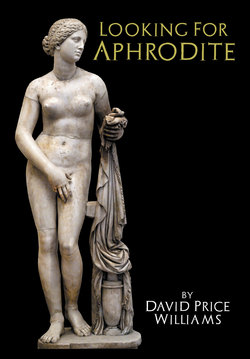Читать книгу Looking for Aphrodite - David Price Williams - Страница 51
На сайте Литреса книга снята с продажи.
ОглавлениеIt is now years later - I don’t know, maybe twenty, maybe thirty years later. I am sitting at the back of the lower theatre at Knidos. On the seats directly in front and below me is a small party staring attentively downwards to where the orchestra, the place of dancing, once had been. We’ve had a long day on the site, reconstructing the various monuments in our mind’s eye, raising the pillars and the fallen architraves in our imagination. At the end of the visit people are always grateful for a real seat, albeit of weathered marble. To lift the mood a little I mention that in ancient times there would have been cushion sellers at the entrance. Several unvarying hours in the best-made theatre seat would have taxed the rear ends of even the most culturally advanced peoples.
And so we sit contemplating the structural architecture of the past. After a while, I pull out a folded paper from my pocket. On it is typed a piece from Aeschylus’ Persae, ‘The Persians’, written almost 2,500 years ago. The play describes the story of how Xerxes, the Great King of Persia, with five million men, had attacked and burnt the city of Athens only to see his own fleet destroyed at the sea battle of Salamis. It was the classic dramatic construction of the hubris, catharsis and nemesis, the essence of tragedy, the over-weaning pride followed by the inevitable fall. In the play, as in the historical fact, Xerxes had pitted himself against the immortal gods and the people of Greece and had failed.
When news of the burning of Athens had reached the Persian court at Susa, in south western Persia, there has been widespread rejoicing. But now a messenger had followed there with the news of this catastrophic defeat.
I begin to read.
The King himself, escaping by weary, winter journeys with his bare life across the plains of Thrace.
43
